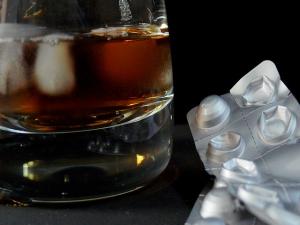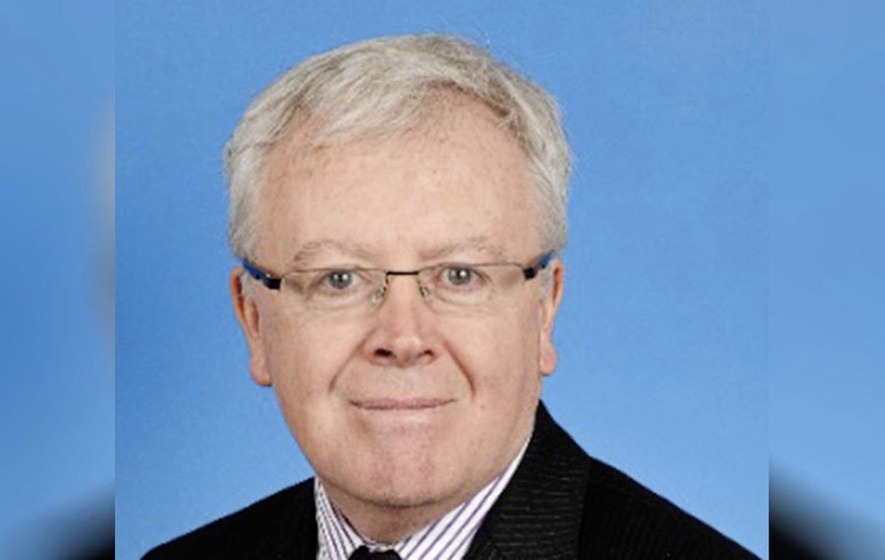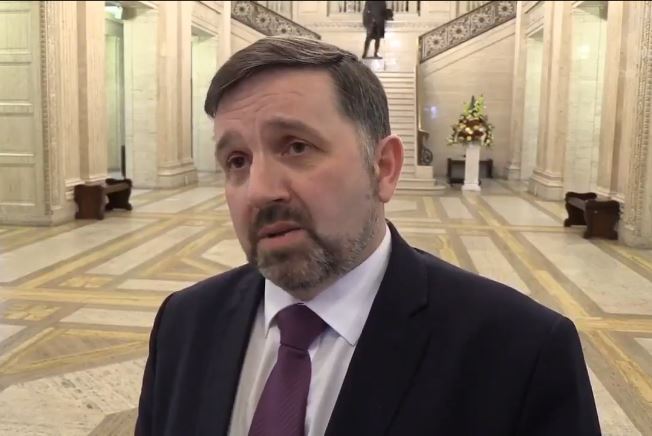
By Michael McHugh, PA.
More than 200 hospital beds were occupied every day in 2019 due to alcohol and drug misuse in Northern Ireland, a watchdog has said.
Abuse of drink alone costs as much as £900 million a year, with some £250 million of this falling on the already-stretched health and social care sector, Comptroller and Auditor General Kieran Donnelly said.
The number of people seeking treatment for substance misuse has grown significantly, doubling from 2,107 in 2007 to 4,183 last year.
Mr Donnelly said: "This is an increasingly unsustainable burden."
His report on addiction services highlights the cost to the public purse.
It warned that substance misuse causes significant harm to individuals, families and wider society, with impacts on physical and mental health, unemployment, homelessness and criminal activity.
Mr Donnelly added that they are complex problems and do not occur in isolation.

Kieran Donnelly
"People need support with a wide range of issues, not just their addiction.
"While this report focuses on the services delivered by healthcare providers, it is clear that only a joined-up approach across the whole of government will begin to tackle this issue effectively."
Despite these significant costs, the Department of Health allocates a relatively small budget to tackling the problem - £8 million for implementation of its drugs and alcohol strategy, and a further £8 million for statutory addiction services from the mental health budget (around 5% of the budget).
Drug misuse deaths more than trebled in the last decade, the report said.
It added: "The level of harm is most acute in areas of high deprivation, where deaths related to drug and alcohol misuse are around four-and-a-half times that seen in the least deprived areas."
Mr Donnelly said the information available paints a worrying picture of a growing problem.
"It is disappointing that the Department (of Health) has little reliable information on outcomes for people seeking treatment for addictions.
"As a result, it has not been possible to determine whether spending on addiction services provides value for money or whether service users are getting the best possible outcomes.
"The future focus must be on the impact services are having on people's lives, not just the number of people looking for help.
"That is why my report recommends that clearly defined objectives and outcomes are built into the Department of Health's new alcohol and drugs strategy."
The report said most drug-related deaths involved prescription medications like pregabalin and diazepam.
Northern Ireland prescribes more pregabalin and diazepam per capita than anywhere else in the UK.
The report said addiction services are facing pressures including an increase in the number of referrals.
Health Minister Robin Swann said the impact of coronavirus would exacerbate the challenges facing a marginalised and vulnerable group of users.

Robin Swann
"Obviously the department will need time to consider the report in detail, however I note many of the issues raised were already identified in the review of our current substance misuse strategy that was published by my department last year. Indeed action is already under way to address many of the issues outlined.
"For example, while the department and the health and social care system collects a range of data on treatment services, we have been working for the last year to improve the collation and the consistency of this data, and to improve the collection of outcomes measured at a regional level.
"This is a complex area as those engaged in treatment services will have different goals for their treatment.
"Work is under way to develop a new substance use strategy for Northern Ireland."
A pre-consultation was completed in late 2019 and a co-production process started prior to the outbreak of Covid-19."
The minister said: "The decision has already been taken to ensure that outcome-based accountability is included as a cornerstone of this work."


 Police launch murder probe following ‘brutal and senseless’ death of woman
Police launch murder probe following ‘brutal and senseless’ death of woman
 More than 5,000 NI children set to spend Christmas in temporary accommodation
More than 5,000 NI children set to spend Christmas in temporary accommodation
 No evidence of police collusion in 1978 La Mon bombing
No evidence of police collusion in 1978 La Mon bombing
 Sex offender who targeted girls online across the UK jailed for 27 years
Sex offender who targeted girls online across the UK jailed for 27 years
 Pre-trial rulings due in Bloody Sunday prosecution of Soldier F
Pre-trial rulings due in Bloody Sunday prosecution of Soldier F